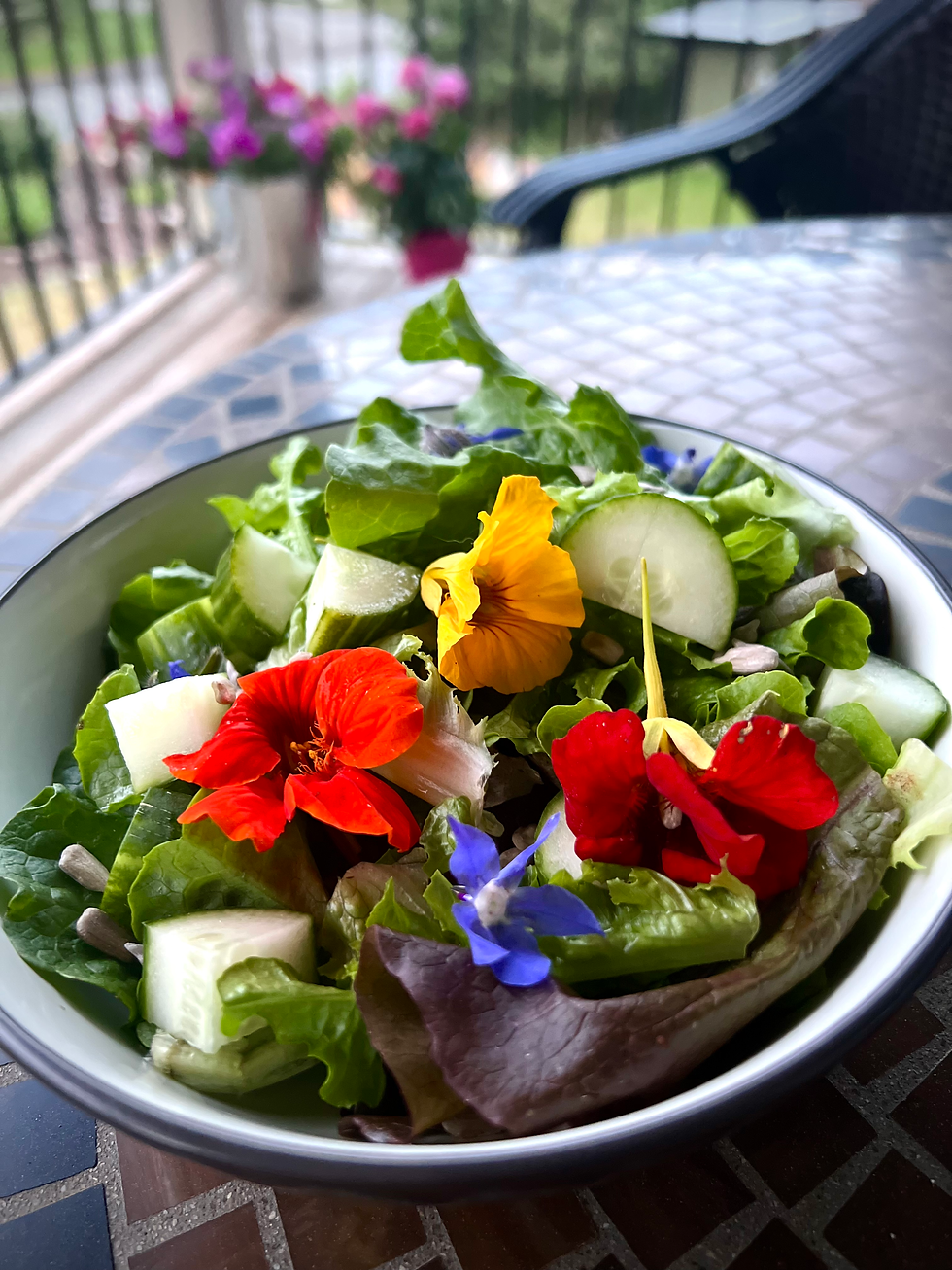"Decoding Herbal Action: Action Terminologies and How Herbs Interact with the Human Body"
- Stevie Vanhalen

- Feb 17
- 4 min read
Herbalism involves a variety of terms and practices related to the use of plants for medicinal and health purposes. Here are some terminologies used in herbalism so you how to use them for their applications. These terminologies describe the actions and effects of the herbs on the body. Some herbs can have more than one applications based on the constituents and what part of the plant that is being used.

Abortifacient may cause abortion.
Adaptogen is an herb that helps the body adapt to stress, promoting well-being, balance, and health. They help regulate or normalize organ and system function on a broad basis.
Alterative is a plant that promotes a gradual, healthy transformation in the body, supporting natural processes and helping to restore proper elimination and other functions.
Analgesic assists in relieving pain.
Antacid neutralizes acids in the digestive system, especially in the stomach, by removing inflammatory irritants.
Anthelmintic expels intestinal parasites.
Antibilious aids in bile production and digestion.
Anticatarrhal helps break down phlegm and mucous in the throat, sinuses, and lungs and/or prevent it from building up.
Antiemetic helps soothe nausea and/or vomiting.
Anti-fungal combats fungal infections either by suppression or by eliminating it.
Anti-Inflammatory reduces inflammation.
Antilithic herbs prevent or dissolve kidney and gallstones.
Antimicrobial interferes with the proliferation and life-cycle of microbes, including bacteria, fungi, and viruses.
Antioxidants protect against oxidative damage and degradation from free radicals.
Antispasmodic prevents or eases spasms or cramps in the muscles of the body.
Antiphlogistic reduces inflammation or fever.
Antitussives help to reduce coughing or help to suppress the urge to cough.
Antiviral helps inhibit the growth of and destroy viruses, acting as immune support and aiding in the recovery from viral infections.
Aphrodisiac promotes arousal.
Aromatics are herbs that engage our senses and support overall wellness, often due to their volatile essential oils.
Astringent can cause tissues to contract, helping to tone and cleanse.
Bitters are herbs that stimulate the digestive system and can help ease gastrointestinal cramping.
Carminative an herb that helps to reduce flatulence and bloating, often by relaxing the digestive tract.
Demulcent is a mucilaginous or oily herb that coats, soothes, and protects mucus membranes, triggering natural moistening secretions within the body.
Diaphoretic helps raise body temperatures to make you sweat, stimulating circulation and cooling the body through increased perspiration.
Diuretic helps increase urination, supporting the body's natural detoxification processes.
Emetic induces vomiting.
Emmenagogue stimulates or regulates menstrual flow.
Emollient is used topically to soothe, condition, and protect the skin.
Exhilarant uplifts the mood.
Expectorant breaks up mucus in the lungs and expels it more effectively, encouraging productive coughing.
Galactagogue aids in the initiation and maintenance of milk supply by stimulating blood flow to the breasts, being oxytocic, or providing a rich source of fatty acids or directly increasing breast tissue.
Heart Tonic supports and strengthens the heart and circulatory system
Hemagogue promotes the flow of blood.
Hemostatic herb is one that controls or stops the flow of blood.
Hepatic aids the liver such as toning, strengthening, and or increasing bile flow.
Hepatoprotective supports and protects the liver, often helping to regenerate.
Hydrophobic substances are those that repel water, such as oil.
Hypoglycemic lowers blood glucose levels.
Hypertensive increases blood pressure.
Hypotensive lowers blood pressure and can be effective in managing hypertension.
Immunoregulators are herbs that assist disregulated immune systems.
Laxative stimulates bowel movements.
Narcotics plants that have a numbing, paralyzing, and drowsiness effect on the central nervous system.
Nervine is an herb that specifically benefits the nervous system, with actions that can vary from stimulating to relaxing and toning.
Nutritive has rich nutritional content and ability to nourish the body.
Psychoactive substances are those that, when ingested, affect the nervous system and alter one’s perception, consciousness, mood, cognition, or reality.
Purgative forcing material out of the digestive system, either by throwing it up or pooping it out.
Rubefacient herbs stimulate blood flow to where they are applied and, therefore, cause redness and warmth.
Sedatives calm the nervous system and reduce stress and nervousness throughout the body.
Sialogogues are substances that induce the secretion of saliva.
Stimulant enhances the activity of the central nervous system, making a person feel more motivated, energized, alert, and awake.
Styptic herbs help stop bleeding by constricting tissues, coagulating blood, and/or creating a matrix that a scab can begin to form on.
Tonic aims to restore and maintain the physiological functioning of an organ system, leading to a subjective feeling of well-being in the patient.
Vulnerary helps in the healing of wounds and inflammation.
*****
Stevie Van Halen is a Master Herbalist who has a n educational background in Nursing and Holistic Health. She enjoys research data and articles of health, whole food, herbs, and gardening. All articles on this blog are written by and her. All information and resources are sited and referenced.
All health content on juniperrosegarden.com is provided for general information only, and should not be treated as a substitute for the medical advice of your own doctor or any other health care professional. If you have any concerns about your general health, you should contact your local health care provider.



Comments